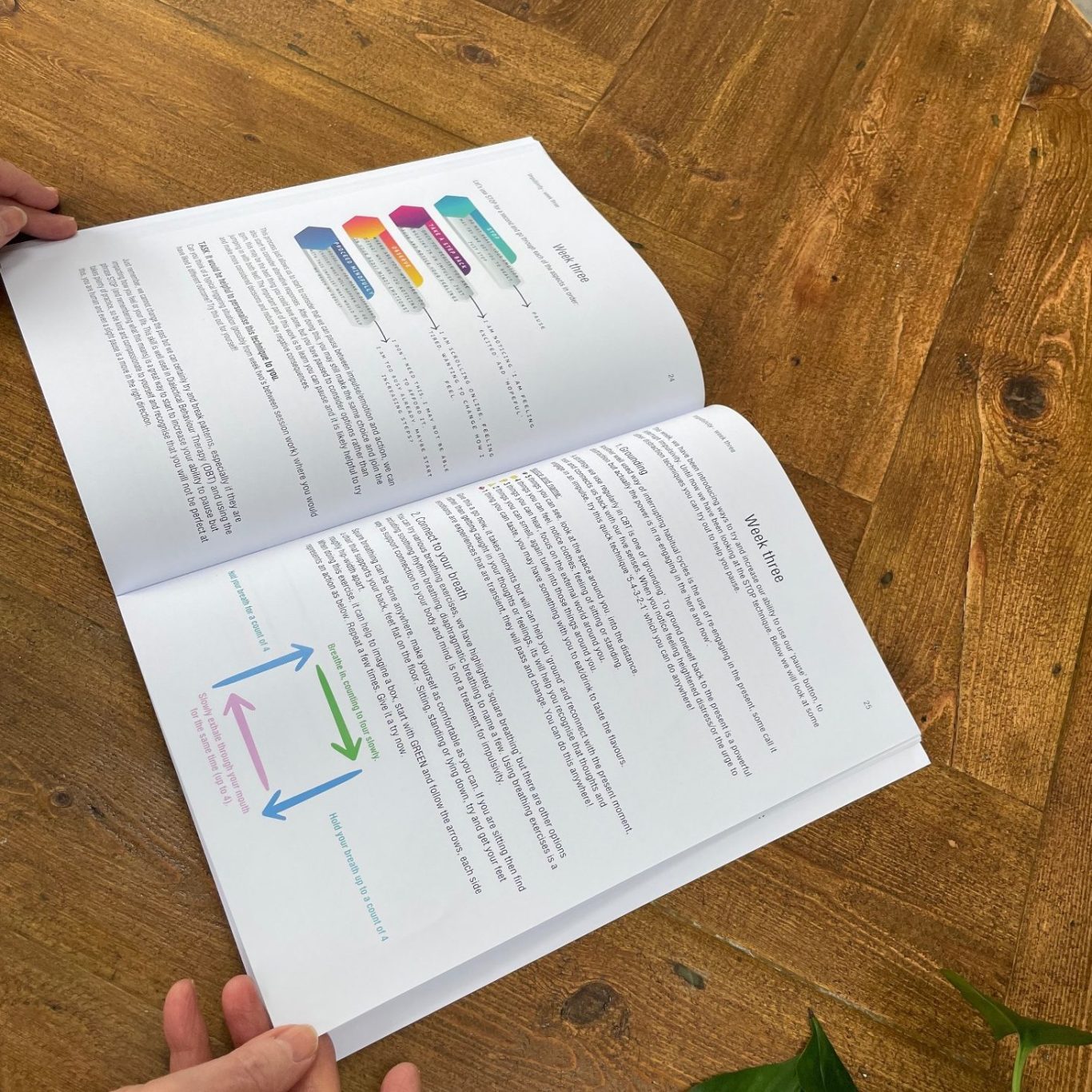
ONLY £20 per workbook,
with weekly text to support engagement!
Managing impulsivity
Impulsivity is characterised as a difficulty in self regulation and managing behaviours. Although there can be helpful aspects to this as you may be spontaneous, a risk taker, fun to be around but there can certainly be disadvantages also such as; difficulty maintaining plans, getting bored by tasks easily and possibly upsetting others.
There are various parts of the brain involved in assessing and managing information, but also in our responses (emotional/behavioural). There is recognition that there is a slowing down of information being shared between parts of the brain, this can impact increased impulsive behaviour.
Examples of impulsive behaviours (this list is not exhaustive):
-Buying things in the moment
-Building up debt/not being able to pay for other things
-Starting tasks but leaving them incomplete
-Missing deadlines
-Making simple mistakes due to rushing
-Interrupting others/speaking over them
-Saying things without thinking
-Getting speeding fines
-Drinking excessively or taking drugs
We can help you understand what is keeping you stuck and how to engage in new strategies to start to manage these symptoms.

Organisation and time management
Do you ever notice that you have the best intentions but organising and planning ahead is a daily struggle?
Sometimes time feels like it moves too fast or too slow?
How do you experience time?
ADHD impacts attention and our brains executive function, this means our tricky brains can impact how and what we do, despite our best intentions.
Key behaviours seen in people with ADHD can be starting tasks but not completing, procrastination and under-estimation of time that tasks take (to name a few). This can lead to a sense of failure and missed opportunities - all of which impact our self esteem.
Time is best seen as a tool for you to use, it can be used to help you manage your days/tasks and achievements. Rather that rely on your memory or old ways of working, maybe simple time management strategies could help.
Behavioural based work is about breaking tasks down, then using a diary to plan and prioritise tasks. Rather than wait for motivation to come to us before we start making change, it is about working from the 'outside in', so this means plan and do the task, then see how you feel afterwards.
When our minds are so busy, there are difficulties with our own executive functioning, using simple tools that we can offer can help us start to effect a change and if consistently practised then this will become more automatic. Remember you likely know what will help but ADHD may impact putting your intentions into action - this is where we can help.
This is also true of the importance of planning in self care, meal planning. If we have a plan of what we need to do this week or even tomorrow, we can start to prepare and plan ahead, reducing avoidance and possible impulsivity.


Both of our workbooks focus on ADHD coaching skills including setting realistic goals and problem solving skills
We can all find ourselves making important decisions in our lives. At times we may find that problem solving is difficult, whether this is due too worry, the unexpected nature of the problem, or as a result of impulsive actions already taken.
Problem solving in ADHD can be especially difficult. Sometimes the better longer term solution is deferred as a 'quick fix' is actioned. At other times it is hard to retain the possible solutions due to attention and distraction. There are many possible reasons that problem solving can be difficult to implement without support. However, there are some really helpful simple tools which can be put in place to support you to have a methodical strategy to cope with life's difficulties - however big or small!
Problem solving technique features in both of our workbooks on organisation/time management and impulsivity.

If you can recognise one or all of these behaviours, especially if they are impacting your life, then starting to make some changes may be beneficial. If you would like a make a start, our impulsivity/organisation planning guides are available and you will have support message each week. You can always opt for further support after this if you require.
Download our digital workbooks now for ADHD, with helpful strategies for executive function.
All you need to do is register, make payment and we will get the workbooks to you via email.
Disclaimer - The content of this website is for general information only. The website is not intended to, and does not, amount to advice. We strongly suggest that you obtain relevant professional or specialist advice before taking, or refraining from, any action based on the information in this website. In addition, we make reasonable efforts to compile accurate information in our website, we make no representations, warranties or guarantees, whether express or implied, that the content in these pages are accurate, complete or up to date.
We need your consent to load the translations
We use a third-party service to translate the website content that may collect data about your activity. Please review the details in the privacy policy and accept the service to view the translations.